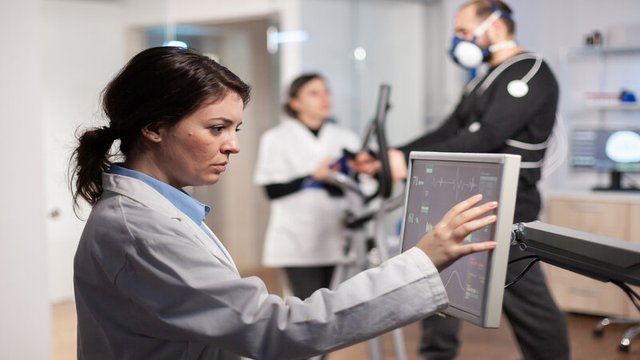
Psychology of sports injuries
June 27, 2023

Sports injuries are an unfortunate reality for athletes of all levels, from amateurs to professionals. While physical aspects like training techniques, conditioning, and biomechanics play a significant role in preventing injuries, we often overlook the impact of psychology on sports injuries, both in preventing them, and how psychology can play a part in the recovery process.
In this article, we'll explore the fascinating field of the psychology of sports injuries and delve into the how the mind and the body are connected in sports performance and injury prevention. And if you are considering a career in the world of sport psychology to help athletes achieve their goals, you should consider the Master in Sports Psychology Online or the Master Sport Psychology at Escuela Universitaria Real Madrid.
Sport psychology: the mind and body connection
Sports injuries are not just a result of physical strain or trauma; they also have a psychological component. Our thoughts, emotions, and mental state can influence how we perform, recover, and even prevent injuries. There is plenty of research that suggests athletes with high levels of stress, anxiety, or low self-esteem may be more prone to injuries. This mind-body connection highlights the importance of addressing psychological factors alongside physical training to reduce the risk of injuries and is one of the factors as to why many professional sports organisations include the figure of a sport psychologist among their key personnel.
Psychological factors influencing sports injuries
As we know, sports injuries go hand-in-hand with psychological factors. So let’s look at the the common factors that could impact an athlete:
- Stress and Anxiety: High levels of stress and anxiety can have a significant impact on an athlete's performance and injury susceptibility. When athletes are stressed or anxious, their attention and focus may be compromised, leading to decreased awareness of their surroundings and an increased likelihood of accidents or overexertion.
- Personality Traits: An athlete's personality traits can also play a role in their injury risk. Certain personality traits, such as perfectionism or a high need for achievement, can lead athletes to push themselves beyond their limits. While determination and drive are admirable qualities, they can sometimes result in overtraining, inadequate rest, and ultimately, injuries.
- Self-esteem and Confidence: Self-esteem and confidence are crucial psychological factors that affect an athlete's performance and injury resilience. Athletes with low self-esteem may doubt their abilities, leading to hesitations, lack of assertiveness, and increased risk of injury. On the other hand, athletes with excessive confidence may underestimate the risks involved in certain movements or neglect proper technique, putting themselves at higher risk.
Prevention and Rehabilitation through Psychology
Being able to recognise the psychological aspects of sports injuries opens up new avenues for prevention and rehabilitation strategies, which is why the figure of a sports psychologist is so important today within sports clubs and teams. Sports psychologists work closely with athletes to enhance their mental resilience, coping mechanisms, and overall well-being. The following is just an example of some strategies they employ:
- Mindfulness and Stress Reduction Techniques: Teaching athletes about the importance of mindfulness and stress reduction can help them manage anxiety and maintain focus during high-pressure situations. Practices such as meditation, deep breathing exercises, and visualization can promote mental clarity and reduce the likelihood of injury-inducing distractions.
- Goal Setting and Positive Self-Talk: Setting realistic goals and adopting positive self-talk can significantly improve an athlete's self-esteem and confidence. By setting attainable objectives and replacing negative thoughts with encouraging self-talk, athletes can develop a resilient mindset and reduce the risk of injury due to self-doubt or fear.
- Injury Rehabilitation Support: Psychological support during the rehabilitation phase is essential for athletes recovering from injuries. Coping with the mental and emotional challenges that arise from setbacks and the fear of re-injury can be crucial for a successful recovery. Sports psychologists can provide valuable guidance, helping athletes navigate these obstacles and regain their physical and mental strength.
Study sport psychology at Escuela Universitaria Real Madrid
We hope this post has answered some of the questions you may have had about the relationship between sport injuries and psychology. If you choose to study one of our programmes in sport psychology at Escuela Universitaria Real Madrid, not only will you learn the theory, but you’ll put it into practice too. Our academic model is based on experiential learning meaning that you’ll spend a large part of your time working alongside experienced professionals at leadings sports clubs and organisations, seeing first-hand the benefits of sports psychology and the importance of the role of the sports psychologist.